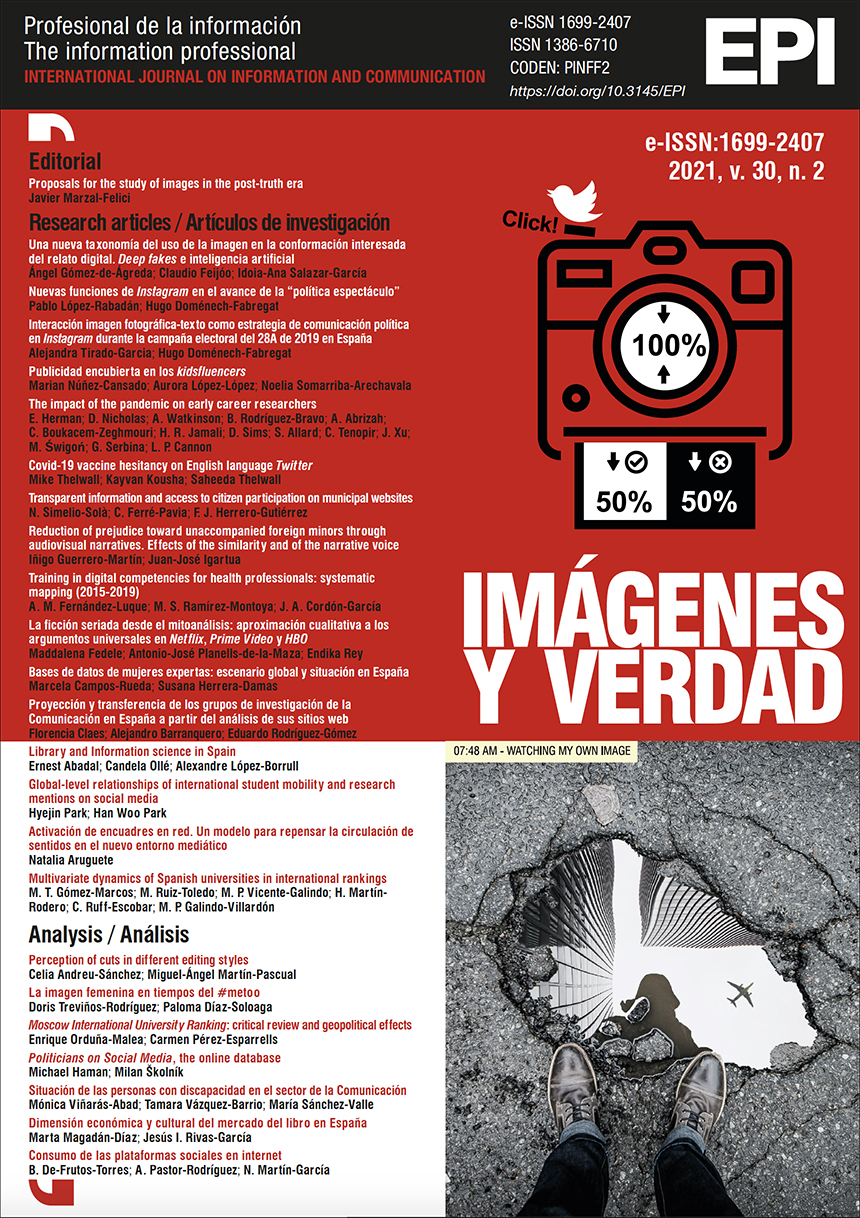Covid-19 vaccine hesitancy on English-language Twitter
DOI:
https://doi.org/10.3145/epi.2021.mar.12Resumen
Covid-19 vaccine hesitancy seems likely to increase mortality rates and delay the easing of social distancing restrictions. Online platforms with large audiences may influence vaccine hesitancy by spreading fear and misinformation that is avoided by the mainstream media. Understanding what types of vaccine hesitancy information is shared on the popular social web site Twitter may therefore help to design interventions to address misleading attitudes. This study applies content analysis to a random sample of 446 vaccine hesitant Covid-19 tweets in English posted between 10 March and 5 December 2020. The main themes discussed were conspiracies, vaccine development speed, and vaccine safety. Most (79%) of those tweeting refusal to take a vaccine expressed right-wing opinions, fear of a deep state, or conspiracy theories. A substantial minority of vaccine refusers (18%) mainly tweeted non-politically about other themes. The topics on Twitter reflect vaccine concerns, but those stating vaccine refusal in non-political contexts may unsettle the wider Twitter network by reaching outside right-wing areas of Twitter.
Descargas
Downloads
Publicado
Número
Sección
License
Condiciones de difusión de los artículos una vez son publicados
Los autores pueden publicitar libremente sus artículos en webs, redes sociales y repositorios
Deberán respetarse sin embargo, las siguientes condiciones:
- Solo deberá hacerse pública la versión editorial. Rogamos que no se publiquen preprints, postprints o pruebas de imprenta.
- Junto con esa copia ha de incluirse una mención específica de la publicación en la que ha aparecido el texto, añadiendo además un enlace clicable a la URL: http://revista.profesionaldelainformacion.com
La revista Profesional de la información ofrece los artículos en acceso abierto con una licencia Creative Commons BY.





